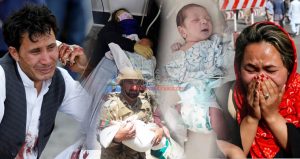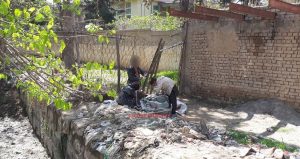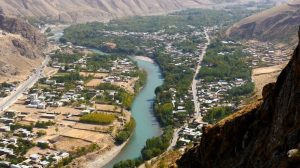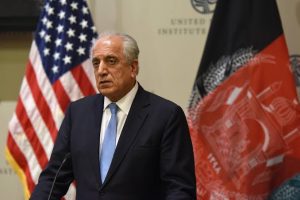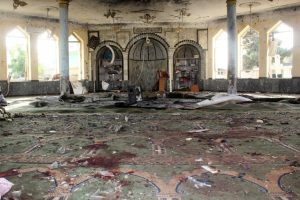Legal and legitimate or illegal aggression?

KABUL: (Middle East Press) Saudi Arabia started its air strike against Yemen under the title “Operation Decisive Storm” on Wednesday, March 25, 2015.
They announced carrying out military operation on the basis of the Article 51 of the Charter of the United Nations and in response to the request by President Mansur Hadi to protect that country and its people from the continuous aggression of the Houthis.
The Saudi military action in Yemen can be analyzed from three points of views of domestic law, international law and humanitarian law.
- The domestic laws of Yemen
The Articles 37 and 38 of the constitution of Yemen describe the situation which provides a possibility of interference by other countries for stabilization of its domestic unrest. The current situation is not compatible with the conditions described in the two articles. In the constitution of Yemen two ways have been suggested for providing legitimacy to the use of military force by other countries for stabilizing the internal affairs of Yemen (Article 37):
First, the parliamentary approval;
Second, decision by the national defense council in a meeting presided over by the elected president of Yemen (Article 38).
The Article 37 of the constitution of Yemen says: “After the approval by the parliament, the president will announce the mobilization of forces.”
According to the Article 111 of the constitution of Yemen, the president is the highest authority of the armed forces but he cannot independently and without the approval of the parliament take any decision about mobilization of forces and or ask for interference of other countries in the internal affairs of Yemen, even the peacekeeping interference.
Beside that, the supreme national defense council was not constituted before the Saudi aggression against Yemen and the same has not taken any decision in this regard. Such a decision and consent is necessary according to the Article 38 of the constitution.
The attack of the Arab coalition countries against Yemen not only violated the constitution of that country, it also violated the principles of the international laws. The use of force, the interference in the internal affairs of another country as well as the violation of the territorial integrity of Yemen cannot be justified as all these three doctrines have been recognized in the Charter of the United Nations and the resolutions of the Security Council.
- The perspective of international law
In view of the centrality the Charter of the United Nations in the actions of the countries in the international security arena and since Saudi Arabia and its allied countries claimed to their air strike is in frame work of the Charter, it is necessary that its articles related to this topic are considered and analyzed.
Para 3 of Article 2 of the First Chapter of the Charter says, “All members would resolve their international disputes through peaceful means in a manner which does not endanger justice and international peace and security.” This Section clearly forbids resort to the violent means by member countries. Also Section 4 of the same article forbids all member countries to use force or threatening to use force or to use any other means contrary to the aims of the United Nations against the territorial integrity or political independence of any country. This Charter, in Article 6 of its Second Chapter declares, “If any member of the United Nations insists on violating the principles mentioned in this Charter, it may be expelled from the UN by the General Assembly at the proposal of the Security Council.”
It is clear from the above that the use of force in violation of the United Nations’ aims (international peace and security and …) by its members against other members is prohibited.
Whatever has happened as a result of the excessive forces of Saudi Arabia in Yemen is in no way compatible with the aims of the United Nations.
The Chapter Six of the UN Charter is related to the peaceful resolution of disputes. It says that all countries, before taking any action, should first try to find out a solution through talks, mediation, compromise, arbitration, judicial recourse, and resort to regional arrangements or other peaceful means of their choice (Article 33 and para1). The thing which requires attention in this article is the manner of interference of the Security Council for addressing these conflicts. On this basis, the Security Council first asks the parties to the conflict to resolve their disputes through peaceful means (para 2, Article 33). Otherwise, the parties (not one party) should refer the dispute to the Council (Article 37). The role which has been proposed in the end of this chapter is the most important (Article 38). This is only an advisory role to the parties of conflict.
The Seventh Chapter of the Charter (Articles 39 – 51) is related to the violation of peace and acts of aggression. The Article 51 of this Chapter says, “In case of an armed attack against any of the members of the United Nations, till the Security Council undertakes necessary steps for securing international peace and security, none of the rules of this charter would place any limitation over the right to self – defense, whether individual or collective. The member countries should report to the Security Council all actions taken by them in exercise of the right of self-defense.”
In this regard it should be mentioned that the claim of Saudi Arabia regarding request of Mansur Hadi for stabilizing the domestic situation of Yemen can in no way be justified as he had resigned before the date of aggression of Saudi Arabia against Yemen.
Therefore, aggression cannot be justified on the basis of such a request. Saudi Arabia would have been justified to take action only if:
Hadi was still holding the post of the president of the country;
Saudi Arabia would have given the report to the Security Council and got its permission before resorting to aggression. Mansur Hadi had no legitimacy as the president of the country and had legitimacy only as a person responsible for the transition of power. Therefore, he was not the legitimate president of the country and had no right to request military interference from Saudi Arabia. This fact can be deduced from Resolution No. 2204 of the Security Council as well. That resolution does not mention him as the legitimate president of Yemen.
According to the Section 1 of Article 53 of the UN Charter, the attack against Yemen is flawed, illegitimate and illegal. This Section asks the member countries to seek approval of the Security Council before taking any action against other member countries.
No such approval was sought by the Saudi authorities before attacking Yemen and this attack has been undertaken in the flagrant violation of the UN Charter. It is obvious that the Security Council in its Resolution No. 2216 passed on April 14, 2015, has closed its eyes from this gross violation by the Saudis.
This air attack and use of illegal weapons (WMD) in some areas has resulted in the killing of innocent civilians and children as well as destruction of the infrastructure of Yemen. Therefore, this resolution has practically lost its legitimacy.
Need to mention that the above mentioned reasons can be also applied about the
Violation of the charters of the Organization of Islamic Cooperation (OIC) and the statues of Arab League.
According to these charters, the Islamic countries should resolve their mutual differences within the framework of the OIC. And in case of Arab countries to the Arab league. Saudi Arabia did not consult with any of the two organizations before undertaking attack against Yemen.
- The perspective of humanitarian law:
Heavy military attacks and bombarding the residential and civilian areas of the people of Yemen by the Saudis has resulted in the loss of lives of the civilians, particularly the women, the children and the elderly and by preventing delivering humanitarian aids to the war victims and injured will cause a humanitarian catastrophe and ‘The Saudi’s intervention endangered the security of the Persian Gulf,’ reign.
The destruction of the civilian infrastructure like water and electricity facilities and hospitals was undertaken to force the people of Yemen to come down on their knees. The destructive attacks of the Saudi Arabia warplanes are in violation of the following:
– The September 16, 1924 declaration of the League of Nations in support of the rights of the children.
– The ‘Geneva Conventions 1949;
– The declaration of the children rights, November 1959;
– the declaration of the UN General Assembly December 14, 1974 related to the support to the women and the children at the time of crises and armed conflicts;
– Article 77 of First Additional Protocol to the Geneva Convention of 1977 about special respect to the children in the face of every form of disrespect.
Moreover, Resolution 2444(23) of December 19, 1968, 2597(24) of December 16, 1969 and 2674(25) of December 09, 1970 also have supported the human rights and the rights of the civilians at the times of the armed conflicts.
While these conclusive and binding documents have prohibited any harm to the civilians during conflicts among the countries, the Saudi military is resorting to such activities in the shadow of the silent of the Security Council.
